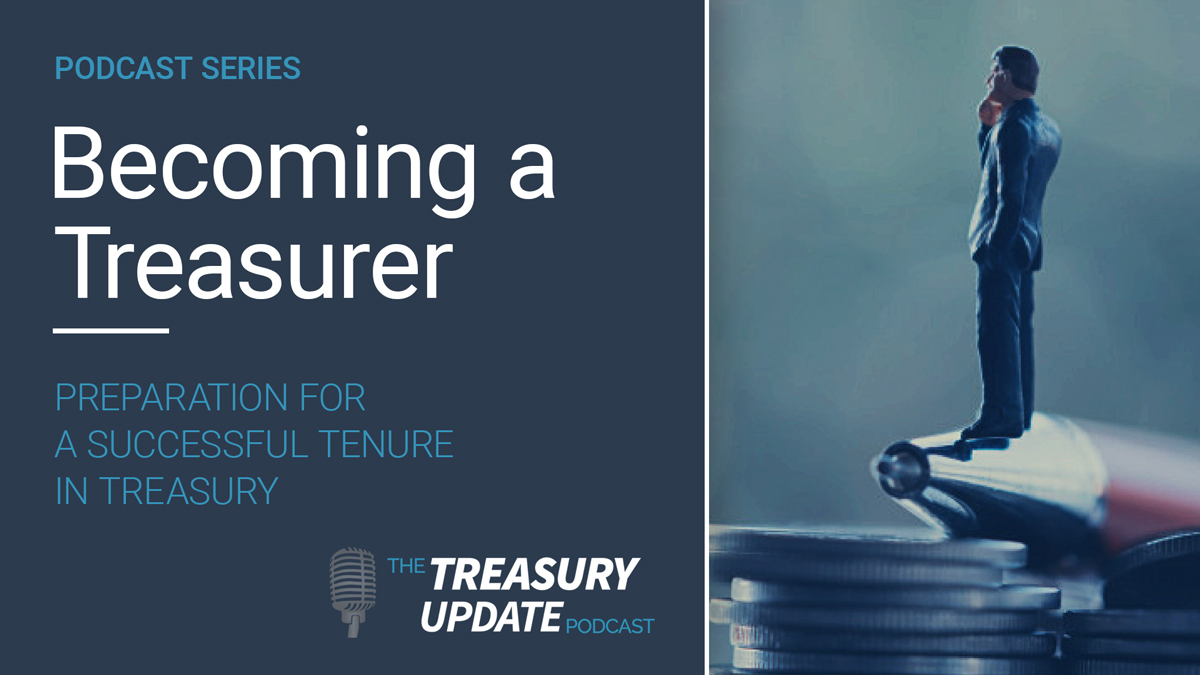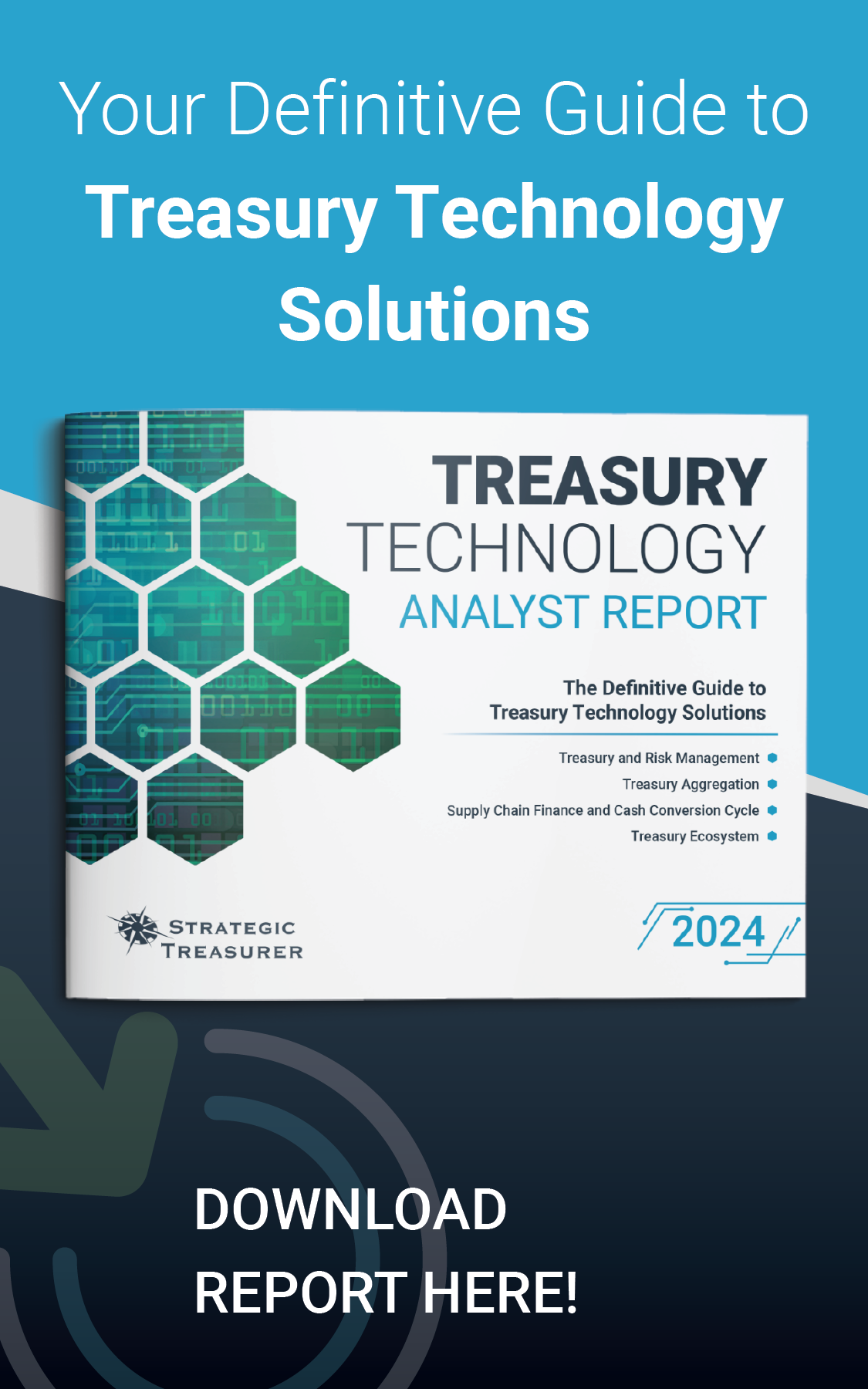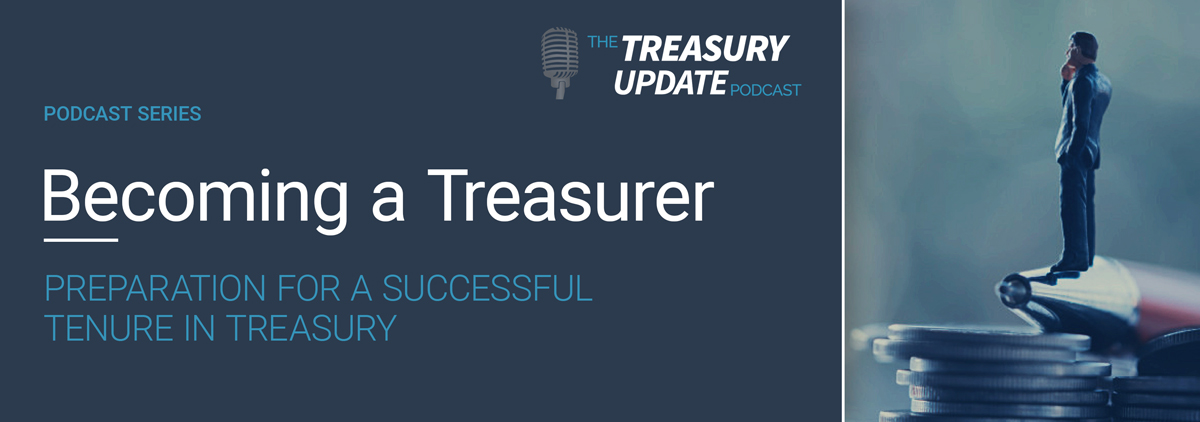
Episode 116
Becoming a Treasurer: Part 14 – Learning from Literature: Measurements. Lewis Carroll
On this episode of the Becoming a Treasurer series, Craig Jeffery continues the Learning from Literature sub-series, expanding upon Lewis Carroll’s Alice’s Adventure in Wonderland. This illustration focuses on measurements with view to benchmarks, standards of good corporate conduct, and world-class practices. Listen in to learn how to successfully set measurements through the lens of literature.
Host:
Meredith Zonsius, Strategic Treasurer
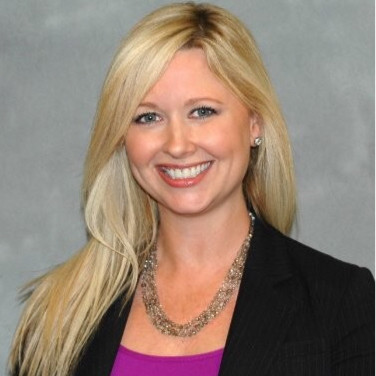

Speaker:
Craig Jeffery, Strategic Treasurer
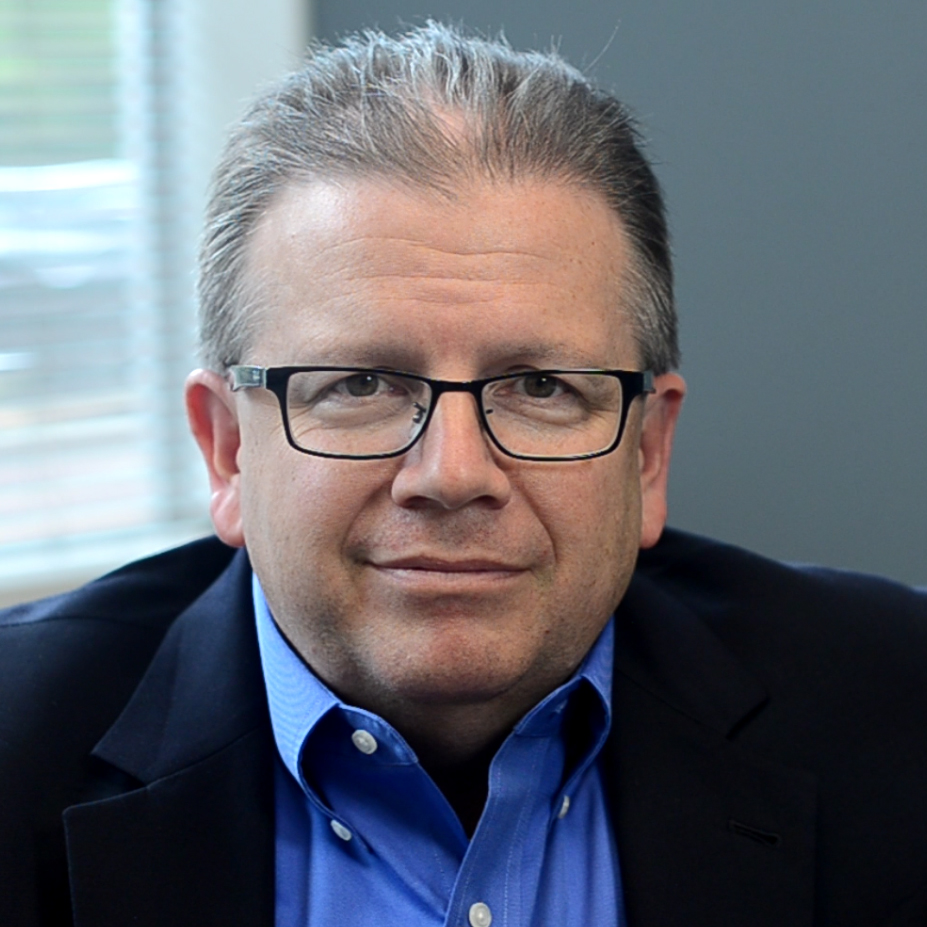

Episode Transcription - Episode 116 - Becoming a Treasurer - Part 14
INTRO:
Welcome to the Treasury Update Podcast, presented by Strategic Treasurer, your source for interesting treasury news, analysis and insights in your car, at the gym or wherever you decide to tune in. Nearly everyone runs to their strengths and leverages this things that they know to achieve a certain measure of success. Growth can then cease and one can become less effective than they otherwise would be. On this episode of the Becoming a Treasurer series, Craig Jeffery examines some common blind spots and identify as methods of effectively compensating for these deficiencies to position treasures for success. Listen in to learn more.
Zonsius:
Welcome to the Treasury Update Podcast. I’m Meredith Zonsius, Communications Manager at Strategic Treasurer, and I’m joined this morning by Craig Jeffery, our Managing Partner and Founder. As we continue the Becoming a Treasurer series, we now turn to intentional flexibility. This episode is called Adaptation And Overcoming Blind Spots. Nearly everyone runs to their strengths and leverages the things they know, to achieve a certain measure of success. Growth can then cease and one can become less effective than they otherwise would be. In this episode, we examined some of the more common blind spots and identified methods of effectively compensating for these deficiencies. Welcome to the show, Craig.
Craig Jeffery:
Thanks Meredith. It’s good to be here. I really like this series on Becoming a Treasurer. There’s, it just makes me think through all of the great things I’ve learned from so many different people and just putting elements together from the different situations. It’s fun to share. We’ve got a lot of really good feedback and that’s both fun and encouraging. And I know this topic and some of our later sessions in the series, we’ve covered some of the same ground in different ways and we’ve added onto it, but it’s good to provide it in a slightly expanded way. Some of the key principles that we’ve been talking about throughout this series.
Zonsius:
I’m excited to be here as well. It’s been fun exploring the series and hearing that our listeners really enjoy it. So how do you frame this episode on adaptation and overcoming blind spots?
Craig Jeffery:
Well, the intro that talked about everyone runs to their strengths and leverages the things they know. It’s like going to the gym. You want to do the things you’re good at. And when you have a trainer, they’ll let you do some of the things you’re good at. And I like working out with weights. I don’t like the body weight movements. And so the trainers always force you to do some of what you don’t like to and that helps you become more well adapted. And so that discipline of doing it for me, it helps a lot in the gym where the trainers are forcing you to do some of those elements that you would steer away from.
But I think in the career standpoint, we need to think about that we’re responsible for our own career, our own activities. And that requires some discipline to do some of the things that you’re not as strong at. You still want to leverage your key strengths. But there are areas where we have to step out, whether it’s personality or you know, confrontation, or developing a team that’s diverse in thought and experience, and so on. Those are some of the key elements of this overcoming blind spots.
Zonsius:
So let’s get into the blind spots. Tell me how to recognize a blind spot and what to do about it.
Craig Jeffery:
Yeah, the recognizing the blind spot that’s probably a level 10 question. That’s pretty difficult. How do you recognize what you don’t recognize about yourself? So hopefully you have peers, other people in the organization, mentors, employees, people on your team who will share and give you some guidance. And it might come in a soft form depending on how accepting you are of that guidance, that points an area that may need some work, or that may not be as effective. That’s one way that’s hard.
The other is when you find that there’s problems and you find whether you’re complaining to others, or complaining internally in your head saying, “I can’t believe they didn’t understand that.” Or there’s some issue and you’re complaining about it and you need to think through, why didn’t the other group, or other person, colleague, or partner understand what you were trying to get at, what you were trying to do. That usually is a good opportunity for reflection. You can’t just blame the other person for not understanding finance, or treasury, or the way you are communicating. So it requires some good reflection.
Zonsius:
So you have to be open to feedback?
Craig Jeffery:
I think you need to listen to it. Yeah, you have to be open to feedback and nobody’s going to say, “No, I don’t want any feedback because I’m perfect.” Or hopefully they’re not saying that would be a little bit on the bizarre side. But sometimes we can think that. We can think, “I’ve got it covered and that person’s overreacting because they didn’t do their part.” So listen to the gentle comments and think through the issues as well. But definitely listen to feedback, ask for it. Don’t feel you have to defend yourself or make excuses for it. But think about that over time. What are your weak spots? What are the areas of growth and what are the areas of strength? And what can you do to improve those? I think it’s just being reflective on it. Maybe not in the heat of the moment, but thinking about what you need to do to be a more rounded treasurer, a better finance person, a better colleague.
Zonsius:
And maybe a good question would be to your boss, or your peers, “Hey, what could I do to improve, or have even greater success?” Instead of saying, “Where are my weaknesses?” Maybe a better way of phrasing it is just say, “Hey, what can I improve on?”
Craig Jeffery:
Yeah. And asking that question, “What can I do to improve?” is a good question. And some people are really quick at saying, “Here’s the two or three things you need to do and why.” Others need some time to think about it. But either way there’s going to be some of that feedback that you’ll have to mull over and think and then translate into a way that makes sense to you in terms of what are you going to do action-wise, thought-wise and response.
Zonsius:
So give me an example of a blind spot.
Craig Jeffery:
Okay. I always pick ones that I have a blind spot on, but I don’t want to be too personal on a podcast. But one blind spot that I see frequently has to do with when people are forming teams. We had a discussion about this, Meredith on one of our other Becoming a Treasurer series about when you’re putting the team together. Do you pick people that have the same type of background as you? And the conversation was not about are they in finance, or in treasury, but do they come through the same channel?
And the blind spot is, I was successful in coming up this way. That’s how I learned. I put those things together and I can say, “Here’s my unique path. And if I can find someone who is smart like me, who’s come through that same path, we’ll have a good kumbaya moment. We’re going to be able to connect and link very well.” And it’s not saying you can’t ever do that, but that does not mean that because you can have shortened conversations that that’s what’s best for the organization. It may mean you’re agreeing with yourself. Essentially. You’re not having a diversity of skills or experiences.
And this could be on everything from how you look at risk to what you do with forecasting to relationship management, to financial analysis. There’s a whole range of areas where having people with different skillsets, different mindsets, even though they might all be treasury, but that can be very additive. It can be very complementarian. It can add to the strength of the organization. Because the organization needs to be made up of everybody’s unique inputs, skills and experience. And so that type of blind spot prevents that. A blind spot to that hiring process and that development process means you’re getting a bunch of people who are thinking the same thing, and you’re missing the same issues. And you don’t want to do that. You want to make sure that that’s not the case.
So think about that. It might be you work with someone who challenges your way of thinking. You disagree with them. That doesn’t mean they’re dumb, but it means that you need to be thinking about this process from a couple different viewpoints. So I think that’s one.
Zonsius:
These blind spots do not seem exclusive to treasury. What else?
Craig Jeffery:
Yeah, they’re not exclusive to treasury. This is general career stuff. So this is more like a general item. But because I spent so much time in treasury, I could give some examples on there. But a second one is for any organization is getting too comfortable with who you are. And this is the “Am I an introvert? Am I an extrovert?” Versus, “I’m intentional in making sure I’m effective.” So you think about an introvert and an extrovert. I think people probably are familiar with it, categorize themselves in a certain way. I like the definition where an introvert might get worn out by being around people. They’ll do it. That doesn’t energize them. Being able to spend time thinking provides them with the energy, whereas the extrovert builds off of interaction with people.
And so sometimes we think of, “Oh, someone’s a good speaker”, or. “Someone’s whatever. They’re an extrovert or an introvert” I don’t think that’s the case. And we can too quickly lapse into a comfort zone and say, “Well, I’m an introvert. I need to spend time thinking, I don’t need to reach out to other areas and understand them. It just wears on me too much.” Well, the introvert needs the time to think, make sure they’re protecting that element of their strength. But they also need to have the relationships with financial institutions, with other areas of the business to be effective. And so they might need to pace themselves, but they need to be intentional and do what may not be as comfortable, and still leverage their strengths that come from the characteristics of an introvert.
An extrovert might be all about relationships, gets energized by that. Well continue meeting, but they might not spend enough time in the tyranny of all the meetings, they may not be sitting and thinking deeply that they need, to to come up with the type of plans. They may only have time for thinking in meetings with other people. But no matter how good of a team player you are, there are times you need to be thinking deeply on your own. Working through items to make the other meetings more efficient, to think through other issues in a non-rushed manner. And so whether you’re an introvert, or you’re an extrovert, you have to be intentional about working against the strengths that you have, and doing the other parts of analysis and relationships. So it’s lapsing into introvert or extrovert versus being intentional as a well-rounded person.
Zonsius:
Are there any other tools that you could provide that would be helpful in overcoming blind spots? Like maybe team building exercises? I don’t know, maybe personality tests?
Craig Jeffery:
Well, it is interesting. Team-building exercises, some people love it and some people don’t. So, let’s say you go to an escape room. We’ve done that as a group. And you could see some people are like, “Oh I want to go and research and figure out how to do it. And this is going to be centrally controlled or not.” Or they feel that, “Hey, we’re going to be working as in pods and teams and we’re going to solve things individually and come together.” And those types of experiences are quite instructive in terms of how you think and how others think and work, and can give a person good reflection. So I think those exercises are really helpful. Some people think they’re silly, doing something together is silly, but it lets you work together in a way that’s not as serious about work. So the relationships can change. But it gives us an insight into our character.
And personality tests, some people find those useful. There’s lots of different ways. Are you the engineer? Are you ISTJ? Those are some things that if you read what those are like you can say, ” Here are some my strengths and some of the things I need to look out for.” Those are certainly helpful to many, many people.
Zonsius:
That’s great. Is there another example that you can give us?
Craig Jeffery:
I have a lot of examples of blind spots. So for the next one, it’ll be being nonpolitical to your peril, versus knowing how to count and build allies. What I mean by that is many organizations have some type of political culture, some are extremely toxic, very much political. You can advance by throwing someone under the bus and that may even be gentle language compared to what happens. And other groups are much more built on merit and teamwork and building things together. But it can vary on the type of organization. So I think the concept is that you need to know how to build allies.
And the idea of, this is for any role in treasury. You’re trying to sell the organization on what makes sense financially, what reduces risk, what helps the organization succeed, helping people to understand cashflow, exposure to different types of volatility in your organization. Those are useful. And when I think about that, knowing how to count and build allies, I remember one treasurer. It was a very political organization and she was describing what she was pushing. She was pushing for what was best for the organization and pushing hard. And there were people who didn’t like that and they, I would say would be making career threats.
And I remember talking, as a consultant, we didn’t have to worry too much about politics. We could come in and say whatever we wanted and we could move on. But I remember she said, “Well, we’re doing what’s right. And I know how to count noses.” And the rest of executive management who would support the right things, she knew who was in her corner and could help to drive the type of change, and made some radical transformation that was really good for the organization. In fact, they were recognized for it nationally, despite some people resisting it. Because you’re moving someone else’s cheese, you’re changing processes that have around for a decade, or two decades.
And I thought that that was useful. But you don’t have to become a political animal, but you can’t just avoid the politics, ignore it or pretend it doesn’t exist. It does exist in organizations in different measures. And if you’re not political, hardly political at all, you can’t survive in a really political organization. So you need to put yourself in a place where you have the ability to adapt within a range where you can be successful there. But just realize that there are things that people do and play to gain resources, or power, or control. And if you’re focused on, “What’s the right thing for the organization”, you need to make sure there’s a way you can compellingly convince people to move in that direction. And that’s gaining buy-in.
Zonsius:
Mm-hmm (affirmative). That requires some insight and some discernment.
Craig Jeffery:
Yeah, it certainly does. And allies.
Zonsius:
Could you provide another tool to help overcoming blind spots?
Craig Jeffery:
Another blind spot to think about is, and I’ve seen this, and I have talked about this before in this series. So I apologize for everybody who’s like, “I heard that already.”
This is the situation where people have been very successful. They’ve solved a problem and they’ve moved on to the next problem and the next problem, the next problem. They’re sequentially going through and addressing the issues. It could be with technology, it could be with organizational structure, it could be with risk, et cetera. But they’ve solved a problem before, they view it as complete. That’s the final end state. As if things aren’t continually changing, there’s always new opportunities. And opportunities to redo need to be recycled and reordered as other changes come up. Take technology for example, it’s very different. Every couple of years there’s significant changes and we look back the past five years, everything with data, connectivity, systems, reporting, analytics very, very different. The tools are completely changed and it has a dynamic impact on what could be done.
And so if you’re saying, “I solved a problem a decade ago and I’m moving us to the next one.” Well how you connect for example, how you manage data, how you handle data, how you build efficient processes, how you protect against fraud, has to be done differently. And so this conflict between “I’ve solved a problem before”, and, “I have a view of continually reforming the processes, or my technologies”, means that you may not be cycling in those things that you solved five years, or 10 years ago, because you’ve looked past it. That can create a significant problem because now you have a myopia about it. “I can’t see it because I’ve solved it. I’ve moved on to the next one.”
And we’re very efficient about moving onto the next one. And because we do that, we have a lot of success. But the point is, there’s certain things that do have to be revisited. Your organization’s structure can be very different from when you created a spinoff organization that was 2 billion, to now, you’re an $8 billion organization with half of your activity globally. Your structure may need to look different, your technology may need to change in different areas. So don’t get too comfortable with, “I’ve solved the problem before.” Be willing to look at those.
Zonsius:
How else can we recognize a blind spot?
Craig Jeffery:
I think there’s different ways to recognize it, but I think one blind spot is fairly common. Has to do with language equivocation. Using one term that means something different to someone else. That can even be within finance. And we did talk about the languages before. The contrast there is, we use language that’s equivocal, can mean different things. Versus we’re communicating clearly, we’re walking in the other person’s shoes, we’re using the language that the other person understands. Now this can take place in terms of cash, financial performance. You may think it means sales, top-line growth, maybe it means bottom line-growth, profit could mean margin, could be related to risk, et cetera.
So this idea of, “I want to be quick in my communication”, sure. But I want to be accurate in my communication to the person who receives the message. And by doing that means I need to understand what the other person’s doing. So communication and relationships, good relationships and good communication required time. And you need to think of it as a process rather than just a single event. So that’s important to reinforce, especially to those things that are important to treasury, like risk, visibility, efficiency, control, flexibility, making wise business decisions, et cetera. Those are really crucial and you need to think that people aren’t going to get it the first couple of times. Keep repeating it. Say it in different ways, making sure they understand it, and you understand what their needs are and solve those. So that’s another one.
There was one other topic that I wanted to touch on. I put a note there about old rules of thumb, versus measurement. Now this is the concept of you looked at something in your organization and you found a certain ratio, or percentage, or information that was very helpful for you and it’s in your head. And you use that as a benchmark to say, “Do these numbers make sense? Does it pass the smell test? Is it reasonable?” And that is a very effective way of being quick on your feet, and looking at risk in an organization and seeing if things make sense. Because treasury and finance has to make sure that they’re right. Not just in terms of order of magnitude, but within a tighter range than that. Was it not just the right direction, but are you in the right range? Is your circle, your cluster of options, the range of what you’re looking at reasonably accurate?
And that’s an extremely important role that treasury plays, is to quickly come to something that approximates accuracy. Now, accounting may be concerned down to the dollar, to the penny, or something that is vital to make sure you have the right controls in place that would detect a financial reporting problem. Treasury and finance has to make sure that when they’re looking at things, they’re looking at the macro picture and get things into the right quadrant, or right sector, not just plus or minus, or right within 3000%. They need to be close.
So my point there about old rules of thumb versus measurement is, when you found out 25% of your business was international and half of that was in Europe. And then as time goes on, if you’re not recalibrating, you find out that it’s 40% of your business is now international, and the vast majority of it is now in Asia. That can make a big difference in terms of how you look at your exposures to currency in other areas. So the old rules of thumb and measurements you have in your head, might mean your response, or your review puts you in a different quadrant, or sector than it should be as you do a quick analysis. So that idea of continually measuring where you are with those rules of thumb that you have internally.
The second part of that is an external reflection. This talks about measurement and I know we had, Becoming a Treasure, we talked about measuring things. And there’s a couple elements there. The first is, “What are others doing versus what we are doing? Are we near the top, are we near the middle? Are we just meeting the minimum standards? Have we fallen below those?” So benchmarking helps us understand, “Where are we versus others.” And then the measurement process of, “Where are we versus where we should be”, means you’re reflecting on, what are leading practices and where do I need to go? And there’s a change in those standards.
And so the fact that the old rules of thumb apply there too. Security for payment files, for example, 15 years ago, is not adequate for today. And so if you’re relying on that history, it’s not safe, and you can talk about lots of examples from personal life or from business. But this idea that old rules of thumb versus a more current measurement, or calibration can be an area where there’s a significant blind spot with many, many people.
Zonsius:
Anything else?
Craig Jeffery:
Okay, I gave you a whole ton of things on blind spots.
Zonsius:
It’s so good though.
Craig Jeffery:
This list may or may not have resonated with you as a listener, or you, Meredith, as we talked about them, but know that we’re susceptible to have these blind spots. We don’t see the car back to our right, or to our left, because there’s something in the way, or just the way our head’s shaped. But we have those blind spots in our careers, in our relationships, what we look at, what we prioritize. And so be aware as you can of what your blind spots are. And make sure either someone else’s helping you see those blind spots, you’re aware of them yourself and so you’re counteracting. You’re turning your head and looking to the side of the car, not just look in your mirror where you can’t see someone behind.
And knowing that you have blind spots means you should check for them. And knowing that you check for them means you’re going to diminish the risk that you face in your career. And the risk you face in your career might be personal, but it’s also the risk you face for your organization of doing all that you can be. And being open to that means you’re going to be a much better treasure, or senior treasury person in your career, in your company, or your organization.
Zonsius:
This is a great discussion. I really enjoyed this episode. Thank you Craig for sharing and to our listeners, thanks for tuning in. If you have any ideas and suggestions for future episodes on the Treasury Update Podcast, please send them to topicspodcast@strategictreasurer.com. Thank you for listening.
OUTRO:
You’ve reached the end of another episode of the Treasury Update Podcast. Be sure to follow the Strategic Treasurer on LinkedIn. Just search for Strategic Treasurer.
This podcast is provided for informational purposes only and statements made by Strategic Treasurer LLC on this podcast are not intended as legal, business, consulting, or tax advice. For more information, visit and bookmark strategictreasurer.com.
Related Resources
#TreasuryFAQ – YouTube Playlist
Check out our YouTube playlist covering many frequently asked questions in treasury!
Becoming a Treasurer – A Treasury Update Podcast Series
This series within The Treasury Update Podcast explores questions around being a successful treasurer. Topics discussed include preparation, what needs to be measured, effective communication, development of a team, and acquirement of resources needed.

